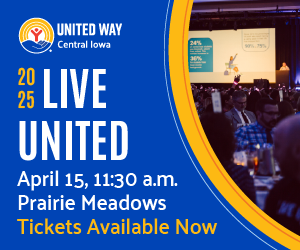
I’m reading a fascinating memoir by Lynsey Addario, a Pulitzer Prize-winning photojournalist. She’s covered the world’s war-ravaged hotspots, including Afghanistan, Iraq and Libya, and recounts her experiences in “It’s What I Do: A Photographer’s Life of Love and War.” It’s hard to put down, yet as a reader and a mother, I have to wonder why she would continually risk her life and leave her husband and 4-year-old son for such dangerous locales. Her answer: “When I am doing my work, I am alive and I am me. It’s what I do. I am sure there are other versions of happiness, but this one is mine.”
Those words kept reverberating in my mind as we were putting this issue together. No, the folks we feature have not faced down the Taliban or been kidnapped in Libya. But what they do share with Addario is the unwavering conviction that they’re doing exactly what they’re called to do and living their versions of happiness. And here’s the thing: Their happiness extends way beyond personal satisfaction; by pursuing what makes them happy, they’re serving our entire community in tangible ways.
Take, for instance, Robert Warren, who moved to Des Moines last fall to become the executive director of Hoyt Sherman Place (click here
to read the story). Talk to Robert for 5 minutes, or less, and the love he has for the arts—and for his job in particular—becomes clearly evident. That passion is driving him to make significant changes at the venue that not only are benefiting audiences, but also schoolchildren, artists and performers, other local arts organizations and the Sherman Hill neighborhood.
Or consider Margaret Toomey. A former Dominican nun, Toomey left the convent because her vision of happiness included motherhood. So she adopted four kids—all of whom began their lives seriously traumatized. What’s more, her dedication to children has reached beyond her own family to include serving countless other disadvantaged kids, both in her former role as the manager of Oak Ridge Neighborhood and in her current position teaching (still—at age 78!) at-risk students for Des Moines Public Schools.
Then there’s Ken-Matt Martin, whose pursuit of happiness led him to co-found Pyramid Theatre Company. As a result, the rest of us will have the opportunity to see plays that will bring us closer to understanding the African-American experience—shows that otherwise most likely wouldn’t be staged in our city. More examples:
Julie Burroughs and Jordan Clasen
. In hearing their calling, both have developed food-based businesses devoted to helping people eat more healthfully.
And that’s just for starters. Throughout this issue, you’ll read about others whose versions of happiness enhance the lives of the rest of us. So get reading, get inspired and get happy.










